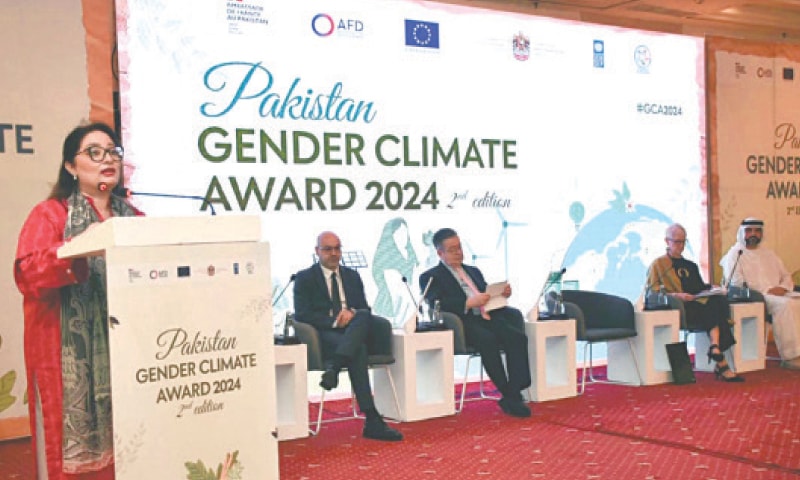Coordinator to the Prime Minister on Climate Change and Environmental Coordination, Romina Khurshid Alam on Wednesday has emphasized the need to address gender equity and population management to reduce emissions and build climate resilience.In a message on World Population Day to be observed on Thursday, tomorrow, Romina Khurshid Alam stressed the importance of understanding the intersections between population dynamics and climate change.
She noted that this intersection was vital for developing effective strategies to mitigate and adapt to the impacts of a warming planet. She said this day is a timely reminder of the need for urgent action to address the challenges posed by climate change, population growth and gender inequality.
The Coordinator highlighted the opportunity to reflect on the implications of population growth and demographic trends, particularly in relation to climate change. She said as the global population grows, there is greater demand for energy, food, and resources, which leads to higher emissions from the burning of fossil fuels, deforestation, and industrial activities.Romina Khurshid Alam noted that demographic changes like aging populations and urbanization could also exacerbate or mitigate climate impacts, but the primary driver of climate change is emissions.
She expressed concerns about climate change disrupting food production, especially in regions like South Asia, which may lead to food insecurity and malnutrition. The PM’s aide also emphasized that promoting gender equity and managing population growth in vulnerable countries is essential for implementing a potential climate resilience strategy.
She urged for a collective effort to address these critical issues and develop sustainable solutions to combat climate change. She said climate-related disasters like droughts, floods and extreme heat put more people at risk, especially those living in poverty with limited resources to adapt.
Highlighting the need for effective population management strategies to mitigate climate impacts, Romina Khurshid Alam said the increasing population has far-reaching consequences on various aspects of sustainability, including environmental conservation, water efficiency, energy conservation and tree plantation programs.
She said larger populations heighten the number of individuals vulnerable to climate-related catastrophes such as floods, droughts, and severe weather events, rendering disaster management more complex.Romina Khurshid Alam underscored the importance of a comprehensive approach to build a more resilient and sustainable future.









